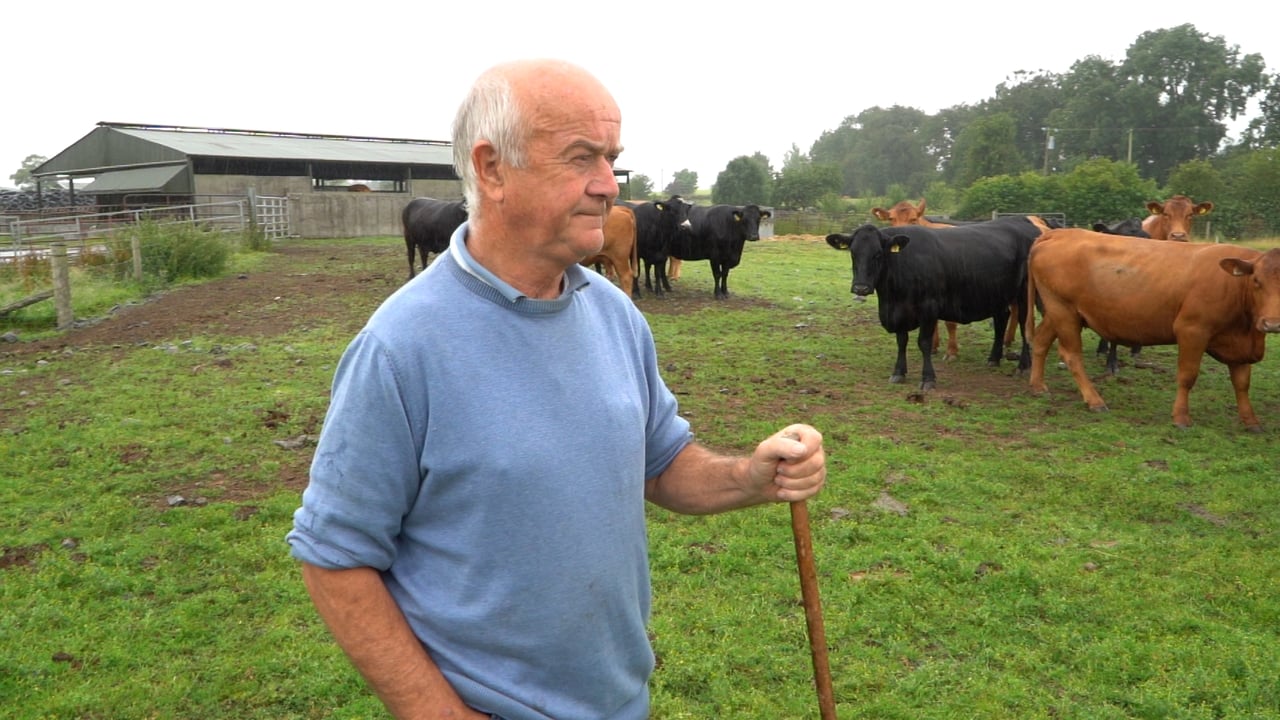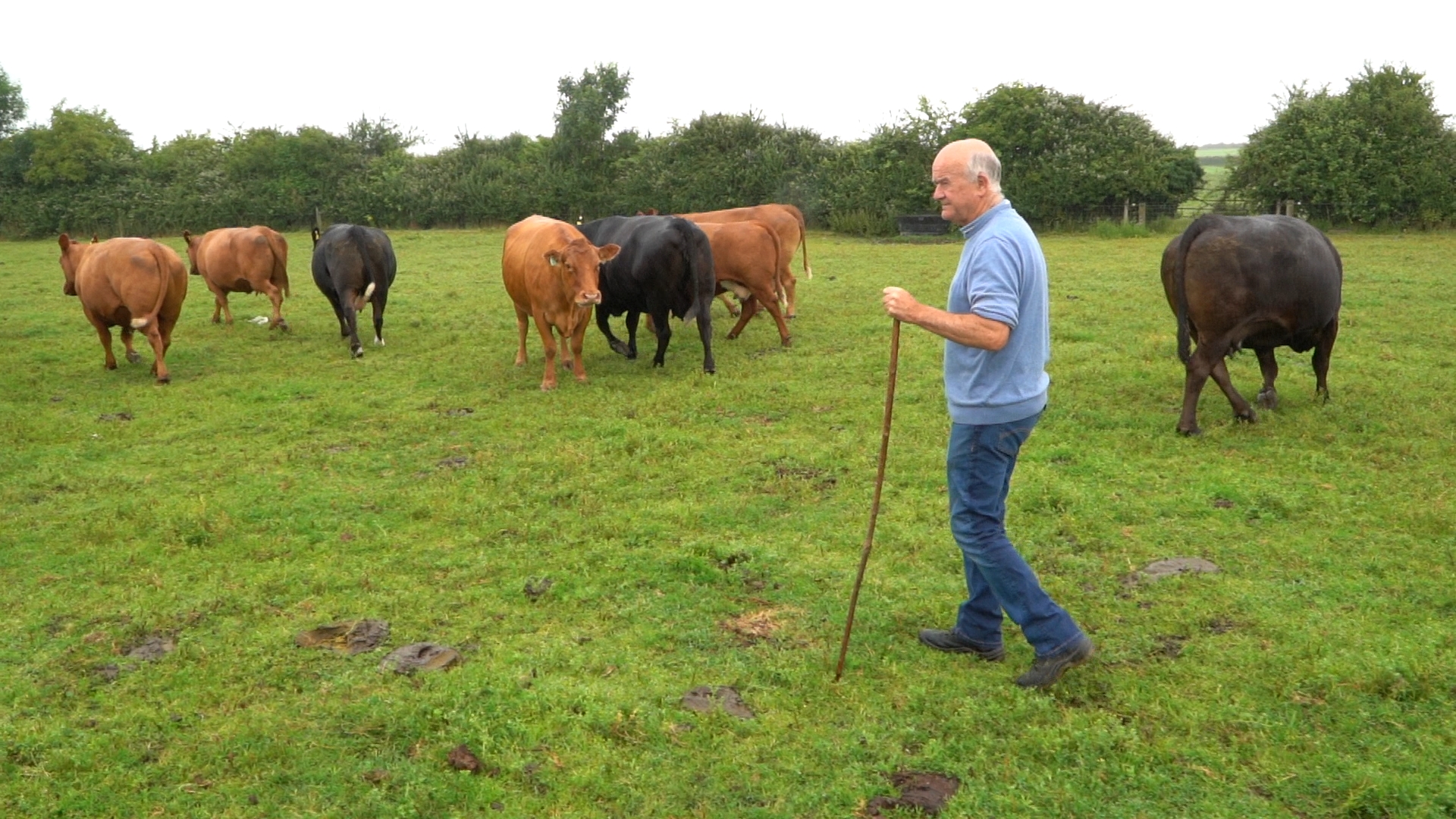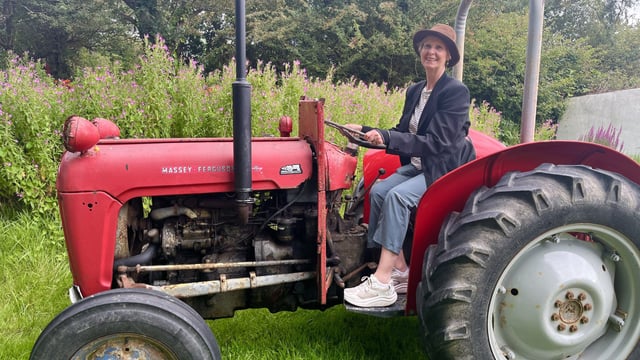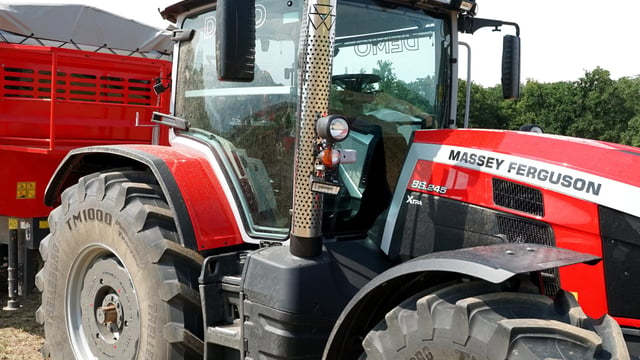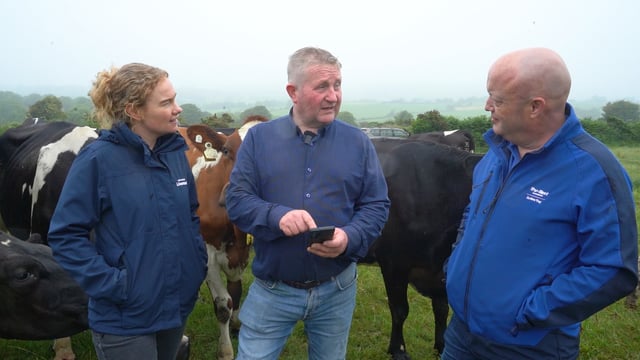Sponsored by ICBF
Sponsored Article
'It’s a no-brainer': Why every farmer should join the NGP
Sponsored Article

Joining the NGP helped this Laois farmer increase genetic gain in his herd
Robin Talbot farming in partnership with his wife Anne and mother Pam, runs a large 220-cow, autumn-calving suckler and beef herd in Coole, Co. Laois.
They place a large emphasis on utilising grass and operate a paddock system. They produce all of their own feed, including winter barley, oats and wheat.
Up to 15 years ago, Robin had been purchasing all of their replacement heifers in local marts.
While this did work quite well for them, he was noticing that 10-15% of the animals purchased did not perform as well as he would have liked.
As a result, Robin opted to start breeding their own replacements.
He said: “Over a period of a few years, we went totally into Stabilisers.
"So now we are breeding our own replacements and keeping our own replacements and the genetics in our herd seems to be improving.
"The two really important factors for us are easy calving and growth rate.”
Over the past five years, the Replacement Index of Robin’s herd has seen a notable improvement from €103 in 2020 to €134 in 2025. The herd currently sits in the top 5% nationally.
The calving season on Robin's farm begins in July and continues through to October. All of the maiden heifers on the farm calve down between 22 and 26 months-of-age.
In terms of breeding, Robin runs seven stock bulls with the herd.
When it comes to selecting stock bulls, he aims to strike a balance between the replacement and terminal traits. Calving ease is his number one priority.
“One of the advantages or upsides of easy calving, the herd has become extremely fertile and also the cows cycle very quickly after calving. We would typically turn our bulls out to calves on October 20," he said.
Robin signed up to the Suckler Carbon Efficiency Scheme (SCEP) in 2023 and finds it works really well for the herd.
The information he gets from participating in the scheme allows him to make the most informed decisions to improve the genetic gain and traits of importance for the herd.
"I think it’s excellent. Information is key in our job. We can readily identify the good cows and the poor performers."
Having the genomic information available gives Robin a clear understanding of the star ratings of his female animals and how well they align with the female eligibility requirements of the Suckler Scheme.
This allows him to make more informed breeding and selection decisions prior to his breeding season.
When the opportunity arose for him to join the National Genotyping Programme (NGP, he did not hesitate to take part.
He explained: “To me, it seemed like a no-brainer because it was fast-tracking the genomic knowledge of my herd.”
At the start of the programme, any un-genotyped females and stock bulls in the herd were genotyped free of charge.
While this took a day or two to do with boxes of tags and cows in the crush, they developed a good system to complete the task.
By participating in the NGP, Robin benefits from a significant labour-saving advantage by using double tissue tags.
This allows him to take both the BVD and DNA sample from the calves soon after birth.
Genotyping the calves at birth eliminates the need for Robin to handle and bring animals back in at a later stage.
As he runs a number of stockbulls with the herd, DNA calf registration ensures the correct sire is registered to each calf born and helps to eliminate any risk of inbreeding.
Robin said: “I think every suckler farmer should be in it.
"Regardless of how many cows you have, it’s important to know the genetics of those cows. Genetics is where the future is."
In the height of the busy calving season, Robin makes a conscious effort to post DNA samples to the lab for testing two to three times a week.
This results in Robin receiving the passports for his calves within 12-14 days after sending away the samples.
Genotyping through SCEP and now, NGP, has allowed Robin to identify his top-performing heifers early on, enabling him to select the best candidates for breeding future replacement stock and increasing genetic gain within his herd.
Joining the NGP has helped Robin to increase genetic gain in his herd, make more informed breeding decisions to produce high quality animals and reduce labour on his farm.
Applications for the National Genotyping Programme are now open. For further information, please call the Herdplus team on 023-8820452.
Sponsored Article


